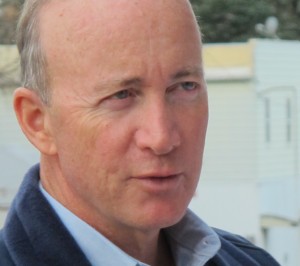The Education State Of The State
Anger over right-to-work legislation from General Assembly Democrats and protestors in the statehouse may have been Tuesday’s biggest story, even as Gov. Mitch Daniels delivered his final State of the State address.
But Daniels did take time to highlight Indiana’s moves to overhaul education policy in the past year in his speech.
In case you missed it, here are the portions of his address relevant to schools:
From coast to coast, others are praising our reforms of public education. One national magazine wrote that Indiana has gone “from the backwaters of education reform in America to the front.” The Fordham Institute said “No one has been more successful in providing a comprehensive reform plan for a system that is failing America’s children.” And then there’s this, from even further away: the Daily Telegraph of London wrote that in education, “England would do well to follow Indiana’s lead.”
The days when education debates started and stopped at dollar signs are over, and high time. From President Obama down, everyone now recognizes that leaders in education are defined not by what they put in but by what they get out. But just for the record, and despite frequent misrepresentations to the contrary, Indiana is a leader in what we put in.
With this year’s spending increases, plus the additional funds we requested for full day kindergarten, K-12 spending is now 56 percent of the entire state budget, the highest percentage of any state in the nation. No state anywhere devotes more of its state funds to education.
But that’s not why others are following Indiana. It’s our new commitment to rewarding the best teachers, liberating principals and superintendents, and providing low- and middle-income parents the same choices as their wealthier neighbors; that’s what has caught the world’s attention. And this year, when we end the cruel, defeatist practice of passing children who cannot read into fourth grade, and when our most diligent students begin to graduate from high school in 11 years, and get a head start on college costs with the dollars they earned through their hard work, others will take notice of Indiana yet again.
A few characterizations with which Democrats and others might disagree:
- Democrats have charged Republicans of cutting school funding, using only partial funding of full-day Kindergarten as a gloss for deeper cuts elsewhere. The Center on Budget and Policy Priorities says Indiana has cut, not increased, education funding.
- Democrats say the state’s “leadership” in education has made life hard for teachers. In a post on the state party’s blog, Indiana Democrats say Daniels “and fellow Republicans pushed education reform proposals that vilified teachers.”
In addition, Daniels spoke about delegating more powers to Indiana’s Commission for Higher Education:
We should assist students with the cost of higher education by empowering our Higher Ed Commission to limit the “credit creep” which unduly increases both time to graduation and student expense. Undoubtedly, some degrees will continue to justify more than the traditional 120 credit hours. But schools requiring 126 hours for a degree in sociology, or 138 hours in special education, or 141 hours in music education, should have to explain why all that time and student expense is necessary, especially when other colleges offer high quality programs in less time and cost.
Ball State University publicly promoted a plan at the end of last year to begin limiting the number of credits required to earn a degree. Both Indiana University and Purdue University have announced efforts to try and reduce the time needed for students to complete college degrees.
What were your reactions to the speech?


